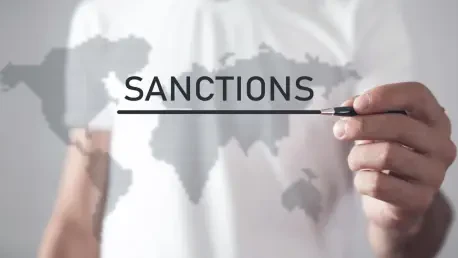In a world where financial stability hinges on strict regulatory control, a simmering issue of EU discord over blacklist mechanisms has raised eyebrows across various sectors. Internal disagreements within the European Union threaten to weaken its global financial regulation efforts. As discussions heat up, the potential repercussions on compliance and anti-money laundering initiatives remain a focal point of intense scrutiny.
Peeling Back the Layers of the EU Financial Blacklist Debate
Understanding the crux of the EU blacklist controversy reveals more than just a tug-of-war between differing opinions. This debate touches on foundational aspects of financial diplomacy, underpinning why aligning with global norms is crucial. Within the past two years, the EU and the Financial Action Task Force (FATF) have yet to sync their lists, causing discord not only internally but also harming international relations. The potential risk is more than theoretical; it carries the weight of significant geopolitical implications.
Creating and maintaining a blacklist is no trivial task. Initially designed to fortify the EU’s defenses against money laundering and terrorism financing, this list has grown in complexity. It’s vital to uphold consistency with FATF guidelines, yet discrepancies have surfaced. These inconsistencies risk damaging trust and coherence, placing EU guidelines under the microscope of international scrutiny.
Striking Off and Out: The Case of Infamous Jurisdictions
Significant contention surrounds territories like Gibraltar and the UAE, which after removal, face ongoing scrutiny over sanctions evasion risks. Delisting raises serious questions about the EU’s efficacy in penalizing non-compliance, wherein other regions continue to maintain stringent stances. By contrasting with global standards, the EU’s strategic balance teeters, sparking debates over the real impacts of these blacklist alterations. The thoughtful examination of such regions illuminates broader ramifications that could ripple through global markets.
In the latest development, the European Commission attempted an update, including the addition of countries like Algeria and Venezuela while opting to delist several contentious regions. However, parliamentary approval remains pending amid pushback, cementing the bitter divide between MEPs and the European Commission. While some lauded these efforts as necessary recalibrations, others viewed them as premature actions, potentially undermining the sanctity of financial governance.
A Clash of Titans: MEPs and the European Commission
Enter the heart of the disagreement between legislators and the European Commission, where ideological clashes underpin the strategic disagreements over blacklist management. MEPs criticize the Commission for perceived negligence, emphasizing the need for comprehensive scrutiny before decisions are finalized. The disconnect showcases a broader struggle to ascertain not just policy but philosophy, in how the EU navigates financial security.
Past instances of similar discord have demonstrated the tangible impact on policy outcomes. These are not surface disagreements; the undercurrents affect operational protocols and legislative harmonization. With the Commission defending the robustness of painstaking groundwork, MEPs call for tighter checks, illustrating a legislative stalemate that demands resolution for sustained financial leadership.
Expert Opinions: Navigating the Labyrinth
Insights emerge from financial luminaries, adding depth to this intricate discussion. EU Commissioner Maria Luis Albuquerque has articulated that the emphasis on international dialogues symbolizes a step toward bridging gaps. Yet, not all view these changes as sufficient. Critics like Birgit Sippel advocate for stronger methodologies that transcend FATF’s reach, signaling persistent apprehensions about regulatory exposure.
Financial experts contend that without aligning practices with evolving international frameworks, vulnerabilities may pervade EU financial realms. An analytical lens reveals inconsistencies but also underscores the incremental progress achieved. It is imperative to scrutinize the cost of inertia in reform, echoing the cautionary sentiment toward maintaining resilience against potential risks.
Averting a Crisis: The Path Ahead
Recent case studies highlight potential oversights that could shape future EU strategies. For financial entities within the EU, navigating compliance amid fluctuating lists demands agility. Firms wrestle with outcomes of sanction revisions, underscoring a transformative landscape that strains resources already stretched by regulatory demands.
Compliance burdens are real and costly, yet they must adapt to global standards to preserve operational integrity. Building enhanced collaboration channels between policymakers can mitigate discrepancies, fortifying EU systems against emerging threats. Implementing forward-thinking strategies means more than just aligning lists; it necessitates a paradigm shift in institutional collaboration.
Charting New Courses in Regulatory Resilience
As the EU navigates through complex geopolitical and financial landscapes, this ongoing discussion underscores distinct challenges and opportunities for greater unity in enforcement policy. A future-forward approach requires tangible adjustments, binding disparate voices into a collective strategy fostering cohesion and global trust. Proactive engagement, educated discernment, and dedicated vigilance remain essential to avoiding a fragmented economic destiny.









